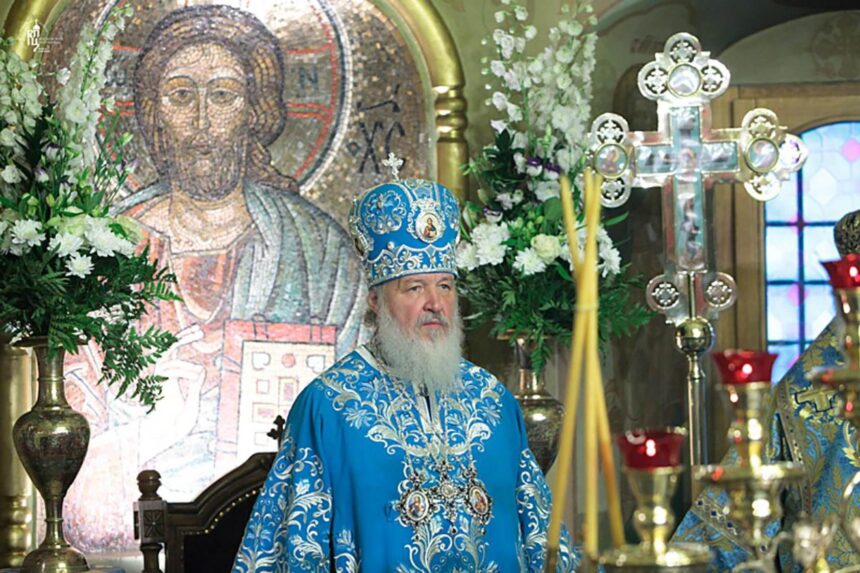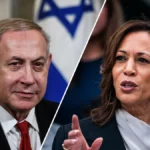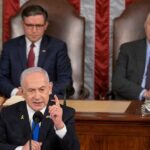Summary by Geopolist | Istanbul Center for Geopolitics:
Russia is expanding its influence in Africa through the Russian Orthodox Church, which supports President Vladimir Putin’s policies, including the invasion of Ukraine. The church’s expansion is challenging traditional Orthodox jurisdictions and recruiting African priests. This move is part of a broader strategy involving diplomacy, military aid, and disinformation to bolster authoritarian regimes and gain public support. Russia’s appeal in Africa leverages colonial history, multipolar world narratives, and conservative values, positioning itself as an ally to marginalized Africans compared to Western powers. Read more below.
As Russia Builds Influence in Africa, its Church Takes a Role
The Russian church’s expansion is challenging centuries-old Orthodox jurisdictions that place Africa within the Patriarchate of Alexandria and All Africa, headquartered in Egypt. In 2021, the Russian church established its own ecclesiastical province, or exarchate, in Africa and accepted what it said were spontaneous appeals from 102 African Orthodox priests to join the Russian church. Moscow has established 200 parishes in 25 African countries, the Russian prelate declared last year. It recruits priests partly with increased pay, and it promises to invest in churches, hospitals and schools.
Moscow launched its push into Africa after losing its long battle to maintain control over Orthodoxy in Ukraine. Global Orthodoxy’s senior-most primate, Ecumenical Patriarch Bartholomew, granted Ukraine’s request for independence from the Russian church in 2019, and Alexandria’s patriarch joined others in support. Russia condemns those decisions as a “deviation into schism” that invalidates the authority of those patriarchs.
The church’s expansion is part of the Kremlin’s broad, strategic campaign to build influence in Africa with every tool available — from diplomacy to disinformation and from miners to mercenaries. Analysts and media investigations document Russia’s weaponization of corruption to secure loyalties from South Africa to Sudan to Zimbabwe. One focus is Uganda, whose autocratic president, Yoweri Museveni, has sustained decades of close ties with Moscow, notably as an arms buyer. Amid Putin’s war on Ukraine, Museveni has buttressed Russia’s position with his diplomatic talking points, a visit to Russia and Uganda’s votes in the U.N. General Assembly. Moscow’s church says Museveni has donated land facing his presidential palace for a Russian Orthodox “spiritual center:” a church, hospital, school and hotel.
To lead its push into Africa, the Russian church appointed Leonid Gorbachev, a cleric known for posting social media screeds against Russia’s enemies and praise for the Wagner Group mercenaries fighting under Putin’s hardline ally, Yevgeniy Prigozhin. Under Gorbachev’s lead, the church focused expansion efforts where Wagner’s forces operated. Two months after Prigozhin briefly rebelled against Putin last year, he died in an unexplained plane crash — and weeks later, the Russian church ordered Gorbachev’s retirement.
Russian church history helps illuminate Russia’s ambitions. Both Ukraine and Russia claim ancient roots in a Slavic kingdom, called Kyivan Rus, that formally adopted Orthodox Christianity in 988. In 1453, when a Muslim army captured Constantinople, the main seat of Orthodoxy, Moscow’s Orthodox hierarchy declared itself the only remaining true church and heritor of Christian religious authority — or in its view, the “third Rome.” The Russian Empire sustained that claim until it was replaced by the Soviet Union, which marginalized the church under the tight scrutiny of the KGB. In Putin’s post-Soviet quarter-century of rule, his campaign to revive Russian power has included new efforts to make Moscow the head of the global Orthodox community, which comprises at least 14 fully recognized, independent (or “autocephalous”) churches. (Other Orthodox churches exist but are not fully recognized among the 14.)
Putin’s efforts to increase Moscow’s influence within Orthodoxy gained momentum until his 2014 invasion of Ukraine intensified Ukrainians’ demands that their church be granted independence from the Moscow Patriarchate. When Ecumenical Patriarch Bartholomew did so, the Russian church broke communion with him and other church leaders, including Patriarch Theodore of Alexandria and All Africa, who supported that decision. Longtime Russian affairs scholar Paul Goble notes that Moscow’s subsequent expansion into the Alexandria patriarchate’s jurisdiction has raised divisions in the Orthodox world.
The Russian church reported in April baptizing about 1,000 people in Malawi. Its website tells of opening a mission in Togo; printing prayer books in local languages in seven African countries; and receiving official registration in Tanzania, the Central African Republic, Zambia, Uganda and Nigeria. The church underscores its humanitarian aid, from winter clothes for Moroccan earthquake victims to a stove for a Burundi orphanage to a chicken house for a village’s flock in Kenya.
Two Russian Targets: Authoritarian Elites, Public Opinion
Russia is building influence in Africa largely through mercenary or military aid and corruption to support and coopt autocratic elites, including military governments and armed factions. This strategy heightens violence and human rights abuses, and complicates any prospect of moving these governments toward peaceful democracy. To build public support for its roles in Africa, Moscow uses diplomacy, disinformation campaigns and soft-power instruments such as the church.
To governments or factions at war, Russia has sold weapons, military training or support from mercenary companies, typically in exchange for corrupt business opportunities. A primary case is the Central African Republic, where the Kremlin-linked Wagner mercenary force (now evolved as the state-controlled Africa Corps) protects the government in exchange for rights to extract diamonds, gold and high-value timber, according to investigations by journalists and anticorruption groups. In Libya’s civil war and in military-ruled Sudan, Mali, Burkina Faso and Niger, Russian forces have pursued similar roles, heightening violence and human rights abuses, independent monitors report.
While Russia markets its partnership to authoritarian and corrupt elites by helping them sustain their power and wealth, it sells itself to African polities as a more caring ally of marginalized peoples than the United States, France or other Western powers. Across 33 countries, Africans’ overall favorability toward Russia declined after Putin’s 2022 all-out invasion of Ukraine, but now has regained its previous levels as support for the United States has eroded, Gallup opinion surveys show. The Russian church’s expansion in Africa makes it a promising instrument of this soft-power campaign, alongside state diplomacy and disinformation efforts. Russia’s appeal benefits from at least six factors:
- Africa’s colonial scars. Russia is able to sell itself publicly as more respectful of Africans than Western powers partly because — while it built its own empire in Europe and Asia — it was never part of the West’s centuries-long colonization, exploitation and enslavement of Africans.
- Calls for a multipolar world. Moscow also wins an audience with Putin’s narrative that he is fighting “unipolar” U.S. domination to establish a fairer “multipolar” world. For example, Russia’s expressed support for fuller African representation on the U.N. Security Council accords with Africans’ demands for a greater voice in international institutions.
- Moscow’s vow of “non-interference.” Russia’s subversion and disinformation campaigns, from its “near abroad” to Africa and elsewhere, belies its formal vow of principled “non-interference in [nations’] internal affairs.” But it offers an attractive form of non-interference, notably to authoritarian and military regimes, by providing security assistance without stipulations about protecting human rights or democracy.
- Africans’ sense of dismissal by the West. Many Africans describe what USIP’s Joseph Sany has called a “tone-deaf … hypocrisy” from the West on the value of Africans’ voices — and indeed their lives. Western powers voice urgency over Gaza and seek African support in defending Ukraine, but give less attention to warfare in the eastern Democratic Republic of Congo or Sudan.
- Conservative and religious values. In contrast to the West’s secular and progressive approach (including supporting LGBTQ rights in Africa), Russia and its church declare “immutable moral values,” including patriotism, tradition-bound roles for men and women, and religious traditions friendly to state authority. Some of Russia’s declared “traditional values” appeal to Africa’s rapidly growing Christian (and Muslim) populations.
- Religious actor engagement. Although the West recognizes the importance of engaging religious communities, state promotion of religious values is generally off its agenda. The Kremlin, by contrast, prioritizes support for religious leaders and groups that can bolster its broad, hybrid campaigns for power at home and influence abroad.
In Africa, as in Russia or Ukraine, the Russian church’s partnership with violent authoritarianism makes it a soft-power tool with a sharp, jagged edge. African governments and civil societies will do well to recognize the church’s role (in a corollary to Clausewitz’ description of war) as Russian policy continued by other means. For their part, U.S. and allied policymakers would do well to recognize the deep roots of many Africans’ receptivity to Russia’s narrative: their experiences of unjust realities, past and present. Supporting peace and democracy in Africa means responding to those realities, regardless of Russia’s presence.
By: Andrew Hoyle – a U.S. Navy chaplain and scholar on religion and peacebuilding; he has served as a visiting scholar with USIP’s Religion and Inclusive Societies team.
Source: USIP







